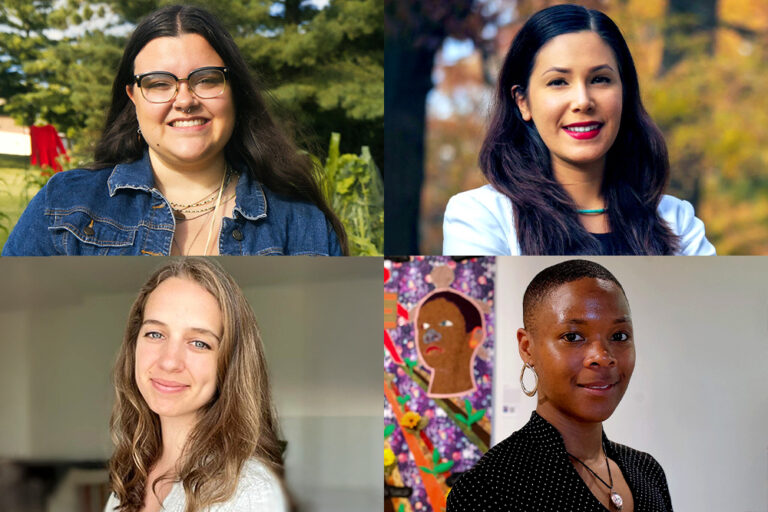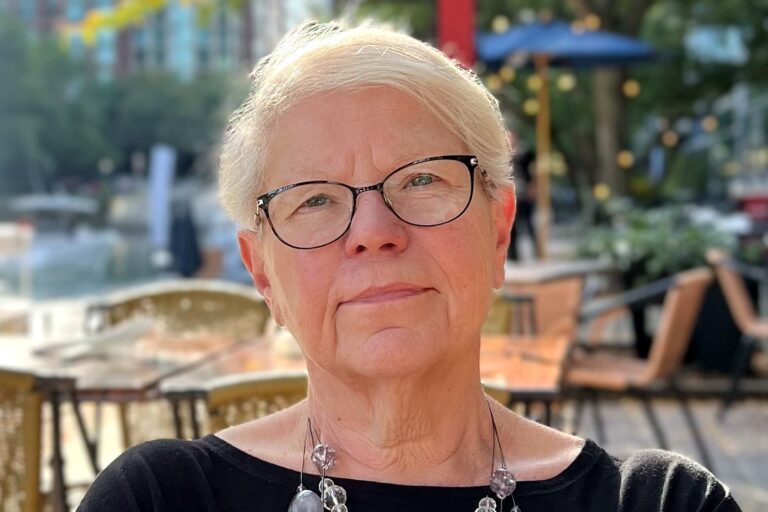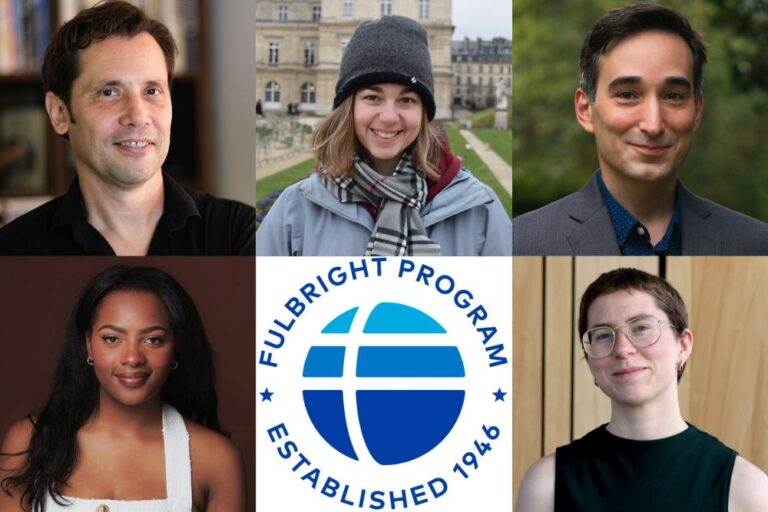Suzanne Evans Wagner isn’t telling people how to talk. She’s here to say that people have options and reasons for talking the way they do.
An Associate Professor of Linguistics in MSU’s Department of Linguistics and Germanic, Slavic, Asian, and African Languages, Wagner researches the social motivations for language variation and language change. It’s a subject she speaks freely about, providing examples, comparisons, and insights for people interested in the science of language.
“Have you ever wondered why some people drink pop, some people drink soda, some people drink soda pop, and others drink Coke or tonic?” she asked. “Those words all mean the same thing. My job is to show you why people call it what they do. It’s also to let people know that however they talk, whatever language or languages they speak, they’re all OK.
“Our analyses are really about figuring out not just how the person said a word, but can we figure out why they said it, and why they choose to say it in that exact way and not some other equally possible way.”
A Drive to Study Linguistics
As an undergraduate student at the University of Cambridge, Wagner studied several different languages. And while she loved speaking languages and learning about literature and culture, she also was interested in dissecting the actual words themselves.
“It bothered me that some verbs had really orderly patterns and some of them didn’t make any sense at all,” she said. “I wanted to know why we had some patterns in some places and we didn’t have patterns in others.”
We’re examining what is it about the way humans interact with one another on a daily basis that makes their language, or languages, the way they are.
Dr. Suzanne Wagner
Most of all, Wagner wanted to know how language structures — and variation in those structures — came about. She decided to pursue a Ph.D. in Linguistics at the University of Pennsylvania to find out more. She became part of a scholarly community that asked about the origins of language, how children learn language from their parents, and how humans process language and decode sounds. While there, Wagner specialized in sociolinguistics, or the study of language within its social context.
“My special interest is how the process of interacting in the world and in society makes language change over time,” she said. “Essentially, we’re examining what is it about the way humans interact with one another on a daily basis that makes their language, or languages, the way they are.”

Analyzing Michigan-Speak
With Michigan being her adopted home, the British-born Wagner was curious to analyze the evolution of Michigan-speak. Engaging her students, she set out to uncover how spoken language has changed within the greater Lansing area from the early 20th century to the present.
Students in the MSU Sociolinguistics Lab began by listening to oral histories from the MSU Library with individuals who had worked in Lansing-area automotive plants. Students listened to the recordings and compared them with ones they made themselves of college-aged Michiganders. Together, the dates of birth spanned the 1900s through 1990s, yielding a picture of Lansing area speech as it has changed over a century.

Wagner and her students specifically looked at vowels and noticed a changeover in pronunciation that happened between baby boomers and Gen Xers. In examining why, researchers considered social and economic shifts within the last 40 years, particularly as they related to the peaks and valleys in the state’s auto industry.
“One generation grew up when the auto industry was doing well, the other did not,” Wagner said. “For Gen Xers, it meant they might have looked outside Michigan for work or education, so they would have been looking at external models for language as well.”
The way you talk reflects who you are or who you want to be, as well as who you spend time with that you care about.
Dr. Suzanne Wagner
Other lab projects currently underway examine language patterns in Lansing’s outlying rural areas and compare them with urban speech. Among the concepts explored, Wagner said, are how people change their pronunciation to reflect their identity, heritage, or social aspirations.
“The way you talk reflects who you are or who you want to be, as well as who you spend time with that you care about,” she said. “We all have different ways of talking, depending on who we are talking to or what we are talking about. We all want to fit in. Inherently, we want other people to feel comfortable with us. Any way we can close social distance, we’ll do it. Adapting the way that we talk to someone else’s way of talking is one of the ways that you can do that.”


